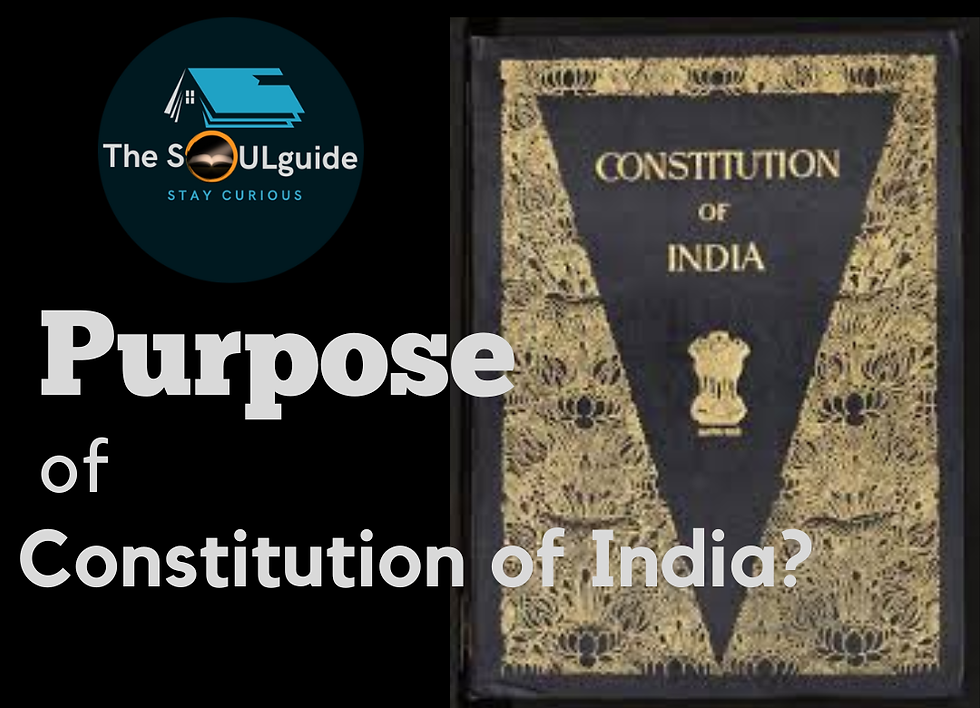What is Constitution of India? What is the Purpose of Constitution?
- TheSoulGuide

- Jan 26, 2025
- 2 min read
The Constitution of India, which was adopted on 26 November 1949, serves as the highest legal authority in the nation. It establishes the framework for the country's governance, outlining fundamental rights, directive principles, and the responsibilities of citizens. This document embodies India's commitment to justice, liberty, and equality, while also recognizing its rich diversity. This article delves into its historical context, development, key features, and significant milestones in its formulation.

What is a Constitution of India?
India, that is Bharat, is a Union of States and operates as a Sovereign Socialist Secular Democratic Republic with a parliamentary system (given in Preamble). The Constitution of India, came into force on 26 January 1950 (while adopted on 26 November 1949). This day was chosen as back during the freedom struggle, 26 January 1930 - this day was declared as Purna Swaraj Day by nationalists, to remember this day, it was decided to celebrate the Republic Day on 26th of January. It establishes a parliamentary government characterized by a federal structure, incorporating certain unitary elements. The President serves as the constitutional head of the Executive.
As per Article 79, the Parliament is composed of the President and two Houses: the Rajya Sabha (Council of States) and the Lok Sabha (House of the People).
Article 74(1) specifies that there shall be a Council of Ministers, led by the Prime Minister, to provide advice to the President. The actual executive authority is vested in the Council of Ministers, under the leadership of the Prime Minister. (Why we need PM when we have President, Read here)
The Purpose of the Constitution
Rule of Law: The Constitution establishes the principle of the Rule of Law, replacing the Rule of Man (Monarchy/ dictatorship). This principle is a fundamental aspect of democracy, as it affirms that sovereignty resides with the populace.
Doctrine of Limited Government: This doctrine mandates that there must be legal limitations on the powers exercised by government officials, particularly concerning the rights of individuals. It curtails arbitrary actions by authorities by granting citizens Fundamental Rights and ensuring the existence of an Independent Judiciary to uphold these rights.
Protection of Fundamental Rights: The Fundamental Rights afforded to citizens serve to uphold the rule of law by constraining the government's arbitrary conduct. Consequently, these rights provide individuals with political freedom.
Doctrine of Separation of Powers and Checks and Balances: This doctrine delineates the responsibilities of the three branches of government, ensuring that each branch exercises oversight over the others, thereby maintaining a system of checks and balances.
Independent Judiciary: A constitution that aims to protect the rights of its citizens must guarantee the independence of the judiciary.
India has one of the longest constitution, which includes 448 Articles (originally 395), 25 Parts (originally 22), 12 Schedules (originally 8), and 105 amendments (the first was made in 1950).
Happy Republic Day.
Get membership to feature your article. Check here.




Comments